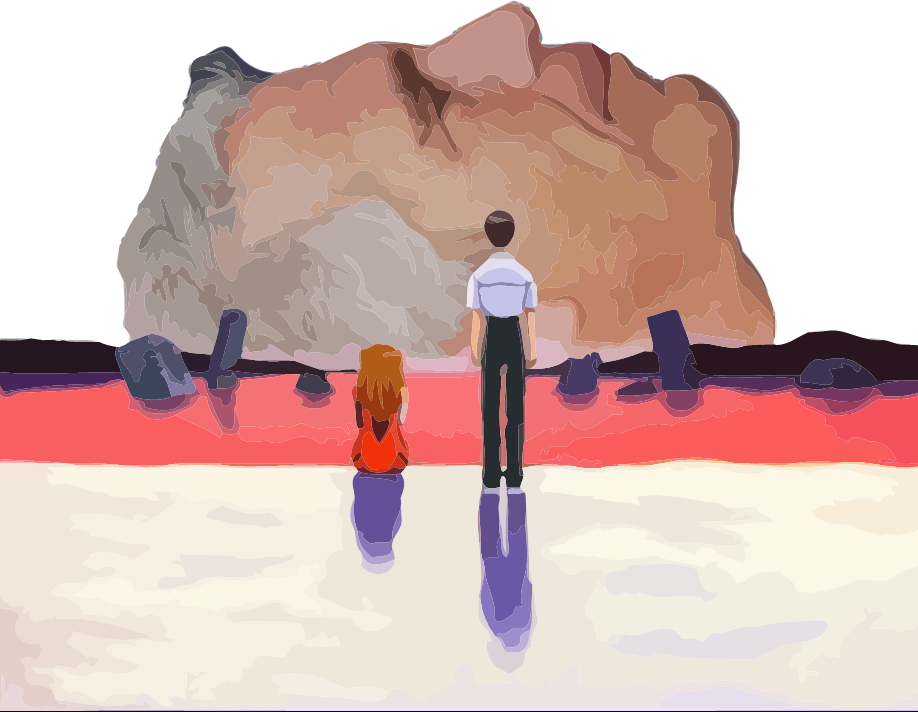I guess I’m asking where do you go for training as a social integrator and who hires social integrators, or is it volunteering? You said you were studying, is it self guided or are you in school?
Tomboys_are_Cute [he/him, comrade/them]
- 3 Posts
- 22 Comments
- Tomboys_are_Cute [he/him, comrade/them]@hexbear.nettoComradeship // Freechat@lemmygrad.ml•I'm going to study social integrationEnglish2·1 year ago
- Tomboys_are_Cute [he/him, comrade/them]@hexbear.nettoAsklemmy@lemmy.ml•Is Evil more powerful than Good? Why or why not?English17·1 year ago
Your question is loaded with too many assumptions. You assume international laws as they stand are good as they stand, you assume torture works to obtain information, but more than that you assume these forces exist in a vacuum. By your logic and with your assumptions obviously evil is more powerful but you’ve papered over so much that the answer to your question is meaningless.
There is also the materialist part of your problem which is it assumes both sides have access to the same resources (and that they work the way you think they do). How many more Good people are there than Evil? Do the Evil people have the knowledge and skills to produce the weapons to facilitate the tactics you lay out or would they rely on Good people to produce them? If they do then what happens if the Good people object to making the weapons that facilitate their winning tactics? How can the Evil people conscript the Good people into performing their duty without those weapons?
Finally it assumes states act in unified ways under central control, and that everyone in those states are state actors and act under command of the state. There is no country in the history of the world where that has ever been true, not only does it go against the concept of free will (which your name suggests you don’t believe in) it also assumes that either states are conscious entities of themselves or there are conscious people controlling these states and every single person in them or acting on their behalf.
- Tomboys_are_Cute [he/him, comrade/them]@hexbear.nettoCanada@lemmy.ca•Is it "standard practice" to only call a patient back if it's bad news?English3·1 year ago
That has definitely been the case for any STI testing I’ve had
- Tomboys_are_Cute [he/him, comrade/them]@hexbear.nettoPiracy: ꜱᴀɪʟ ᴛʜᴇ ʜɪɢʜ ꜱᴇᴀꜱ@lemmy.dbzer0.com•Download managersEnglish2·1 year ago
Vuze has always been good to me though I don’t know if it is strictly “optimal.”
- Tomboys_are_Cute [he/him, comrade/them]@hexbear.nettoComradeship // Freechat@lemmygrad.ml•I'm going to study social integrationEnglish6·1 year ago
Good luck Comrade! Out of curiosity where does one get started with that kind of work?
- Tomboys_are_Cute [he/him, comrade/them]@hexbear.nettoCanada@lemmy.ca•Federal net-zero electricity regulations will permit some natural gas power generation: source | CBC NewsEnglish2·1 year ago
Why do they argue against themselves and still lose? Who asked for that?
- Tomboys_are_Cute [he/him, comrade/them]@hexbear.nettoGenZedong@lemmygrad.ml•Gen Z will be last generation with white majority in US, study findsEnglish20·1 year ago
Oh fuck you’re one of those bay of pigs motherfuckers. You’re into that shit
- Tomboys_are_Cute [he/him, comrade/them]@hexbear.nettoGenZedong@lemmygrad.ml•Gen Z will be last generation with white majority in US, study findsEnglish22·1 year ago
You forget to take into account background level racism in

- Tomboys_are_Cute [he/him, comrade/them]@hexbear.nettoTechnology@lemmy.ml•The Company Behind Stable Diffusion Appears to Be Crumbling Into ChaosEnglish92·1 year ago
Corporate law is going to stop any of those guys from getting arrested for theft and that is a crying shame. I hate copyright as much as the next guy but these guys ain’t it
- Tomboys_are_Cute [he/him, comrade/them]@hexbear.nettoCanada@lemmy.ca•Developers had direct influence over Ontario Greenbelt land removal, AG finds | Globalnews.caEnglish5·1 year ago
If this is a surprise to anyone I would insult their critical thinking. How could that have gone any other way? Obviously that land was going to be more valuable as single family detached homes in a wildly speculative real estate environment and of course developers would know that. Of course these developers would have influence too, they were Ford’s base in the 905!
- Tomboys_are_Cute [he/him, comrade/them]@hexbear.nettoCanada@lemmy.ca•Developers had direct influence over Ontario Greenbelt land removal, AG finds | Globalnews.caEnglish21·1 year ago
I got so used to being in a downvote free environment, having them really makes it easy to quietly quell this stuff
- Tomboys_are_Cute [he/him, comrade/them]@hexbear.nettoAsklemmy@lemmy.ml•What made you choose your instance?English5·1 year ago
Hard same
- Tomboys_are_Cute [he/him, comrade/them]@hexbear.nettoManga@lemmy.ml•Why Don't They Make College Sports Manga? Is College Sports Not as Big as Highschool Sports in Japan?English31·1 year ago
Its for the same reason most manga is set in a highschool (in no particular order):
1: It is a crutch to supplant lazy writing about what characters do the rest of the time. What do these people do when they’re not in an action shot? Class! How do these people make a living? They don’t (usually)! Don’t even need to think about it. What kind of experiences do they have that might influence decisions? Stuff from school! What clothes do they wear? Uniforms!
2: It is a very marketable setting. Everyone (mostly) can relate to going to highschool, the same can not be said for university or any other path after that. It allows you to have a lot of young people as characters (even young adults don’t feel too far removed) (also
 ) which are good for sales.
) which are good for sales.3: Pursuing dreams like major league sports after you’re of age is broadly discouraged if you’re not literally the best. This one is a bit harder to substantiate because I’m not from Japan, but when I went to study my non-stem major I got weird looks, I can’t imagine what it would’ve been like to pursue mostly sports.
- Tomboys_are_Cute [he/him, comrade/them]@hexbear.nettoAsklemmy@lemmy.ml•What made you choose your instance?English356·1 year ago
I still remember the sub


- Tomboys_are_Cute [he/him, comrade/them]@hexbear.nettoAsklemmy@lemmy.ml•Why did you get fired?English111·1 year ago
Failure to show up. I got a job out of the city that would put me up for the summer and straight up forgot to tell my boss. Should have paid me better if you didn’t want me to leave

- Tomboys_are_Cute [he/him, comrade/them]@hexbear.nettoDeath to NATO@lemmygrad.ml•Why U.S. war tactics are failing in UkraineEnglish14·1 year ago
In one word, stubborn. The officers I saw ranged from assholes (who salutes in the field?) to normal nerds with a history degree. The enlisted was really diverse, it ranged from frat bro types, wanna-be the bad guy from avatar 2 types, guys waiting for their contracts to end, guys who joined for their greencard which I think is particularly fucked up systemically, and a couple of nerds sprinkled in too. The officers didn’t really interact much with the troops off duty which was a bit strange for me, usually where I’m from while they still have separate messes it wouldn’t be unusual for an officer to be invited in after an exercise by their subordinates.
- Tomboys_are_Cute [he/him, comrade/them]@hexbear.nettoDeath to NATO@lemmygrad.ml•Why U.S. war tactics are failing in UkraineEnglish10·1 year ago
I was but not in the USA, sometimes we would do training with them either as peers or to be Opposition Force


👏 Where 👏 are 👏 these 👏 sugar 👏 daddies? 👏